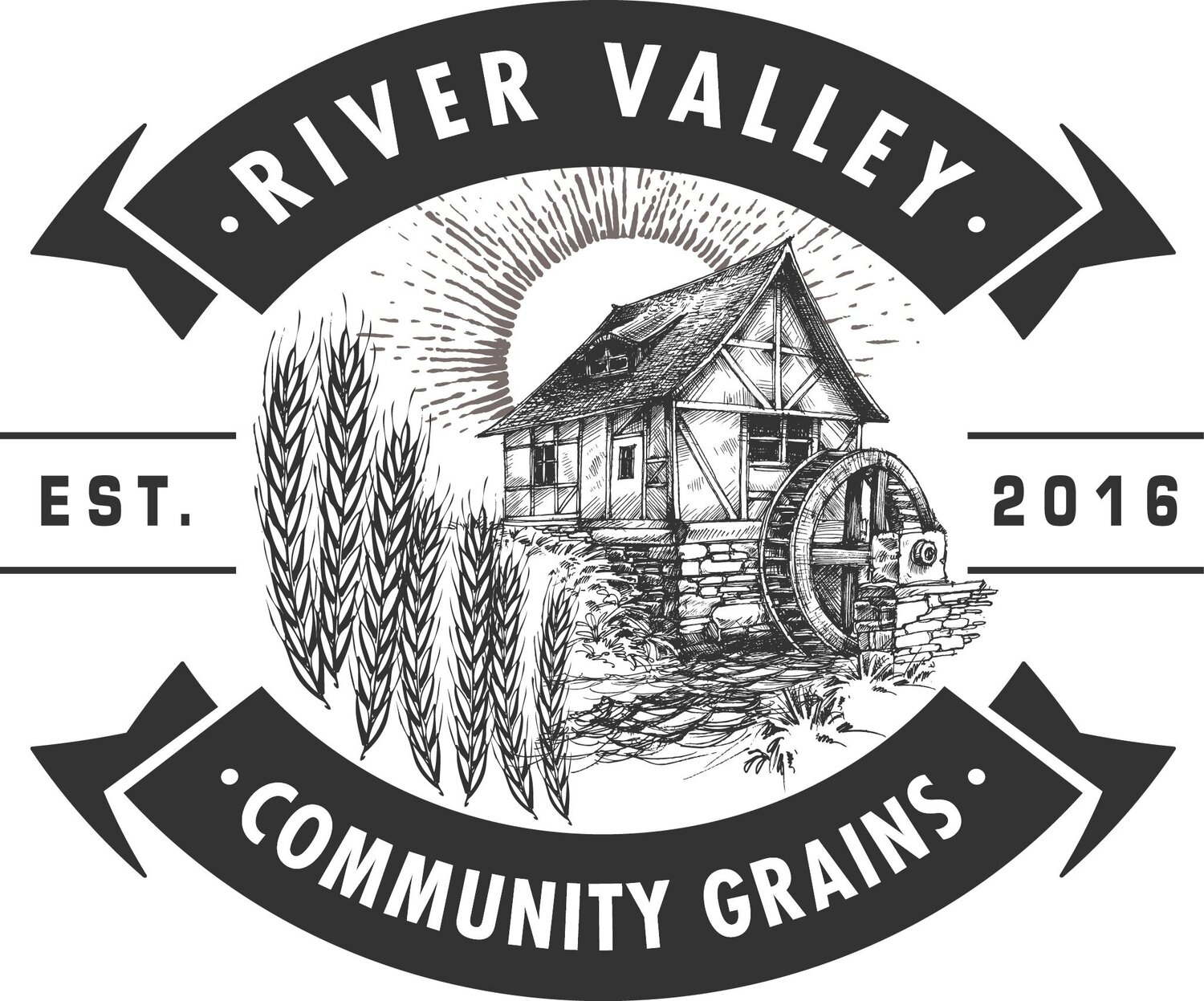
OUR ROOTS
Our Mission
River Valley Community Grains uses a collaborative approach to grain production, encouraging farmers to use regenerative agricultural methods. We are working to engage the farmer, miller, and baker in conversation with each other to meet the growing demand for nutrient-dense grains, local flour, “real bread,” and healthy cereals in our region. Together with our partners, we create nourishing, delicious flours and food, while holding a shared vision of restoring the soils, waters, and health of our communities.
Marksboro Mills
We are currently operating out of Marksboro Mills at 1045 Route 94 in Marksboro, NJ. Here we roll oats, stone-mill wheat into flour, and prepare orders for the website and farmers markets—all while continuing to carry out our mission of collaboration and regeneration. Customers can purchase our full line of products at the mill, as well as value-added items like granola, bread, and other baked goods made using our grains.
River Valley Community Grains is closing the loop on local food, calling in our neighbors to participate in the entire process. The wheat is grown across the street on Ruthie’s Farm, milled on site by us using our locally built New American Stone Mill. The resulting flour is baked into sourdough bread by Jed’s Bread in Bloomfield, and then brought back to our shop to sell to the community. We are immensely proud to operate at this level of integrity.
Marksboro Mills is located across the street from Ruthie’s Farm, where our winter and spring wheat are grown. Owner Ruthie Perretti’s passion and commitment to local food has made Marksboro Mills possible. In November 2023 we acquired a 48-inch New American Stone Mill with sifting capabilities. We’re honored to be the 200th customer and first in the state of New Jersey.
Our aim is for Marksboro Mills to act as a kitchen incubator, encouraging collaboration and supporting new food businesses in the community. The Red Barn Kitchen Incubator in Long Valley was essential to RVCG’s success during our first four years, and we want to pay that forward.
Plans for classes and pop-up food events with our partners are in the works, so keep an eye on our social media and join our mailing list. We also invite you to stop by in person to discover what RVCG is all about.
Our History
River Valley Community Grains emerged out of a project known as Restoring the Musconetcong River Valley, which began as an intention to restore the soils, waters, farms, and sacredness of our region.
In an effort to expand the conversation and plan a course of action, about 50 people gathered in February 2016 at Hawk Pointe Golf Club, organized by Mike Hozer, Len Bussanich, Larry Mahmarian, and Miriam MacGillis, founder of Genesis Farm.
One of the goals of that gathering was to take concrete steps towards the formation of a local, organic grain hub. Dr. Elizabeth Dyck of Organic Growers Research Information-Sharing Network (OGRIN), who has been a tireless leader in promoting regionally-based, value-added, organic grain production throughout New York, Pennsylvania, and New Jersey, led the discussion and shared stories of successful small-scale grain enterprises in the northeast. It quickly became apparent that our region held tremendous potential to help meet the growing demand for “real” bread, nutrient-dense grains, and “local” flour, while providing economic incentive for farmers to transition away from chemical-based feed farming to regenerative agriculture.
With Elizabeth’s guidance, Steve Gambino of Villa Milagro Vineyards took the leap and transitioned a field of soybeans into high-quality wheat, which was then stone-ground into flour. Samples of this first flour were given to Linda Curcio of Hampton Junction Restaurant and Bill Harper of Harper’s Bakery and Bagels, both of whom reported great results. A short while later, Mike, Len, and Larry formed River Valley Community Grains.
In January 2017, River Valley Community Grains was invited to organize and lead a community gathering at the Middle Valley Community Center in Long Valley. Once again, Elizabeth Dyck was on hand generously sharing her experience and insights. At that meeting we gathered more momentum and recruited local farmers to test heritage grain crops on small plots of their land. We were off and running, and it’s been a wild, amazing journey since then.
Thank you to everyone who took the time to sit with us and share your experiences as we attempt to better understand the history and the present state of grains, and for encouraging us as we reimagine local grain production through the lens of collaborative and regenerative agriculture.
